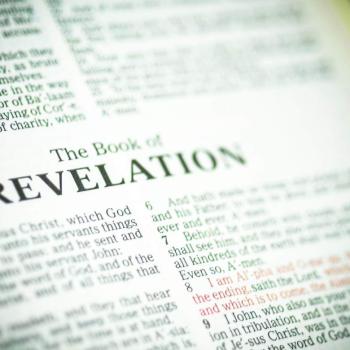Our little community newspaper arrived this week with fireworks on the front page, which means that we'll be hearing a lot about freedom and liberty during the next few days. Most of us will feel some moving sensation when that high A floats us up to "the land of the free-eee," be it goosebumps, lump in the throat, popped vocal cord. But if in that moment we were pressed to define our understanding of freedom, would we be able to give a coherent account of that fundamental category in the American experience?
I've written before about the work of Steven Smith and his book The Disenchantment of Secular Discourse, in which he argues that the Western democracies rely on a covert infusion of religious ideas into supposedly secular notions of freedom and equality, which would otherwise remain shallow and inert. Smith may be right: I'll leave that to the political scientists to settle. But if he is, and if Christianity, together with its genealogical connection to Judaism, provides the content for our patriotic celebrations of liberty—that is, if Christian liberty has more than an incidental relation to political liberty—well, does that clear anything up?
The idea of Christian liberty was a touchstone for the Protestant Reformation; both Luther and Calvin wrote on the topic in exegeses of Galatians 5. Paul assured the saints in Galatia:
It is for freedom that Christ has set us free. Stand firm, then, and do not let yourselves be burdened again by a yoke of slavery.
Mark my words! I, Paul, tell you that if you let yourselves be circumcised, Christ will be of no value to you at all. Again I declare to every man who lets himself be circumcised that he is obligated to obey the whole law. You who are trying to be justified by the law have been alienated from Christ; you have fallen away from grace. For through the Spirit we eagerly await by faith the righteousness for which we hope. For in Christ Jesus neither circumcision nor uncircumcision has any value. The only thing that counts is faith expressing itself through love.
This is what philosophers call a kind of antinomianism, an anti-legalism that Paul takes to define Christian discipleship over and against Judaism. Law creates sin, Paul says; Christ has come to set us free from law and thus free from sin.
The notion of Christian liberty explicitly informed emerging Enlightenment notions of political liberty during the English Revolution. The most ardent and articulate exponent of both, Christian and political liberty, was John Milton, and his Areopagitica is a tour de force of that synthesis, before it was forced into hiding by modern secularism. Milton's defense of free speech is still entirely readable and entirely relevant:
When God gave [Adam] reason, he gave him freedom to choose, for reason is but choosing; he had been else a mere artificial Adam as he is in the motions. We ourselves esteem not of that obedience, or love, or gift, which is of force: God therefore left him free, set before him a provoking object, ever almost in his eyes; herein consisted his merit, herein the right of his reward, the praise of his abstinence. . . . What great purchase is this Christian liberty which Paul so often boasts of? His doctrine is, that he who eats or eats not, regards a day or regards it not, may do either to the Lord. How many other things might be tolerated in peace, and left to conscience, had we but charity, and were it not the chief stronghold of our hypocrisy to be ever judging one another?
Milton himself recognized the seeds of social chaos in his own argument, and assured his reader that he was not "introducing license, while I oppose licensing." There must be some limit on the most egregious forms of expression—popery, for instance. Milton's horror of Catholicism seems quaint at best to modern eyes (terribly bigoted at worst), but most of us have our own limits to which we will allow Christian liberty, no further. And indeed the excesses of the English Revolution, and the eventual restoration of the monarchy, seemed to confirm the claims of Milton's critics that Christian liberty implied a chaotic antinomianism.
The Book of Mormon prophet Lehi offered another read on Christian liberty, one that we might call "pro-nomian," or in favor of law. For Lehi, the abolishment of law suggests an ultimate nihilism.
And if ye shall say there is no law, ye shall also say there is no sin. If ye shall say there is no sin, ye shall also say there is no righteousness. And if there be no righteousness there be no happiness. And if there be no righteousness nor happiness there be no punishment nor misery. And if these things are not there is no God. And if there is no God we are not, neither the earth; for there could have been no creation of things, neither to act nor to be acted upon; wherefore, all things must have vanished away.





